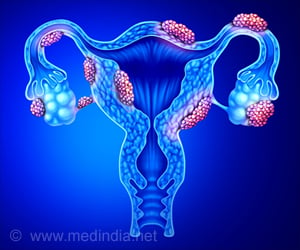The first ever oral bacteria link between a mum with pregnancy-associated gum disease and her still born baby has been established by an American research.
The first ever oral bacteria link between a mum with pregnancy-associated gum disease and her still born baby has been established by an American research.
The study conducted by Yiping Han from the Department of Periodontics at Case Western Reserve University School of Dental Medicine, has appeared in the article, "Term Stillbirth Caused by Oral Fusobacterium nucleatum," in the February issue of Obstetrics and Gynecology.In 2008, a friend of a mum who had given birth to a stillborn baby came to Han's research lab, which is among the few in the world working to understand the role variations of the oral bacteria, Fusobacterium nucleatum, on pre-term labor and stillbirths.
The mother gave birth to her fullterm baby at Saint John's Health Center in Santa Monica, Calif., at 39 weeks and five days.
Han was told that when the 35-year-old mum first fell pregnant she faced excessive gum bleeding, a symptom of pregnancy-associated gingivitis, which affects nearly 75percent pregnant women.
Han said: "There is an old wives' tale that you lose a tooth for each baby, and this is due to the underlying changes during pregnancy...but if there is another underlying condition in the background, then you may lose more than a tooth but a baby."
Bleeding linked to the gingivitis enabled the bacteria, usually contained to the mouth because of the body's defence system, to enter the blood and find passage to the placenta.
Advertisement
According to Han, usually a mother's immune system takes care of the bacteria in the blood before it comes in contact with the placenta. But in this case, the mother also experienced an upper respiratory infection like a cold and low-grade fever just a few days before the stillbirth.
Advertisement
Postmortem microbial studies of the infant found the presence of F. nucleatum in the lungs and stomach. The death of the baby had occurred due to a septic infection and inflammation caused by bacteria.
Han arranged for the mother to visit a periodontist, who collected plaque samples from her teeth.
Using DNA cloning technologies, Han found a match in the bacterium in the mother's mouth with the bacterium in the baby's infected lungs and stomach.
The bacteria from the vaginal and rectal areas did not show the presence of F. nucleatum.
Han said: "The testing strongly suggested the bacteria were delivered through the blood."
With preventative periodontal treatment and oral health care, the mother has since delivered a healthy baby.
Han said the case pointed to the necessity of good oral health care.
Han added that women, who are considering giving birth, should maintain good dental health and take care of any oral health problems before getting pregnant.
Source-ANI
RAS















